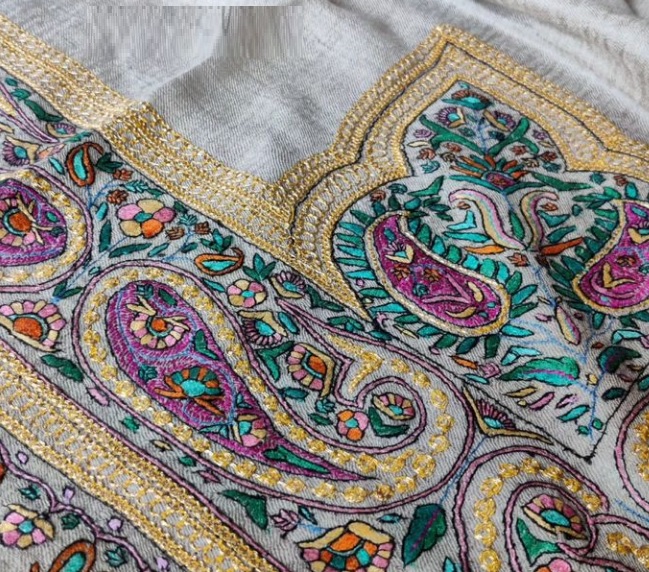SIGN UP FOR NEWSLETTER
Be the First to Know. Sign up to newsletter today

Pashmina is synonymous with pashmina shawls and stoles.
Pashmina refers to a type of fine cashmere wool and the textiles made from it. They were first woven in India. These shawls are made of Pashm or Pashmina, which is the wool of a species of the wild Asian mountain goat. The goat is a special breed which is indigenous to high altitudes of the Himalayas in India, Nepal and Pakistan.
The shawls and stoles are hand spun, woven and embroidered in Kashmir. It is a cottage industry. Generations of families have been involved in the pashmina and carpet making trade. In addition, these shawls were once worn by the royalty and the elite.
Available at Delhi:-Ahujasons Shawl Wale(Delhi), Shaw Brother(Delhi), Wrap(Delhi), Janvi(Delhi)
Pure Pashmina shawls are lightweight and very soft. The fibres are thinner in diameter from the normal wool and are therefore ideal for making lightweight scarves. There are shawls and stoles with beautiful embroidery also done in it.
When you travel in India, you will notice that shops in and around all the tourist attractions display these shawls.
In many instances you will find that they are not original pashmina at all. A combination of silk and woollen fabric is passed off in many instances. They are certainly not the original ones. This is because of the heavy demand for these shawls and stoles. It is therefore important to discern the difference .
Mir Sayeed Ali Hamadani, an eminent Muslim scholar, is said to have brought the art and crafts of Iran to Kashmir in the 14th century. He had a great influence on the religious, social and political aspects of the Kashmiri people. He is certainly believed to have brought around 700 followers to Kashmir. These included weavers as well. They started the unique tradition of shawl weaving in the homeland of pashmina goats.
It was Hamadani who advised the Kashmiri ruler, Sultan Qutb-ud-Din (1373-89) to commence the shawl weaving industry in Kashmir. That is how this came into being from the soft wool produced by Ladakhi kashmiri goats.
Firstly, the weaving of shawls remained one of the key economic pursuits in Kashmir for centuries. The entire process, right from spinning to weaving on handlooms, is done manually by skilled artisans.
However, this trend of making pure Pashmina is gradually changing ever since the launch of power looms. To meet the ever-growing demand for this shawl, people have started preferring power looms over traditional handloom. They are not only cheaper but can also produce 15 shawls per day (a handloom can hardly produce two). Hence, the shawls and stoles are available in plenty.
Be the First to Know. Sign up to newsletter today
325 views